Find Help
More Items From Ergsy search
-
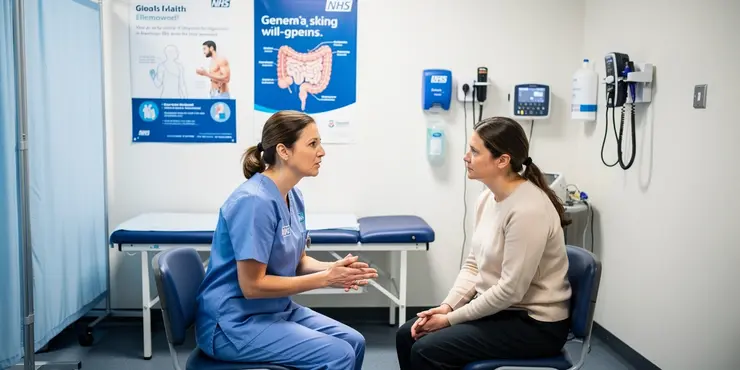
Symptoms of irritable bowel syndrome (IBS)
Relevance: 100%
-
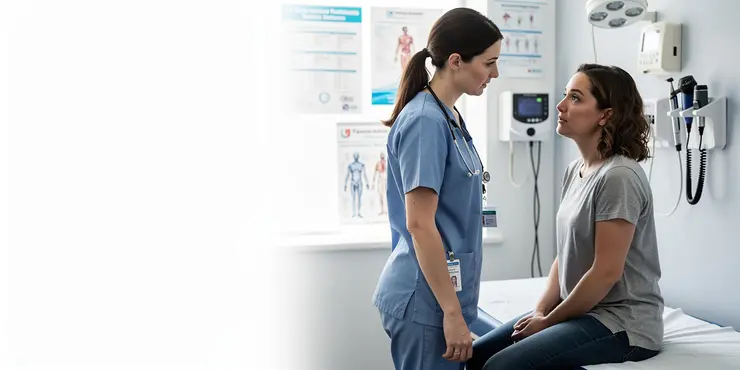
What is irritable bowel syndrome (IBS)?
Relevance: 99%
-
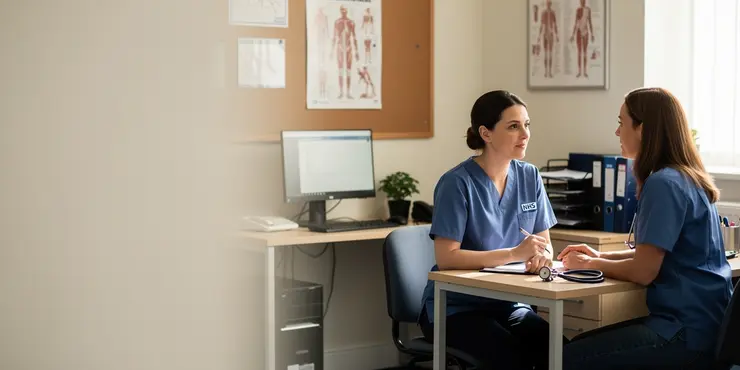
About irritable bowel syndrome (IBS)
Relevance: 98%
-
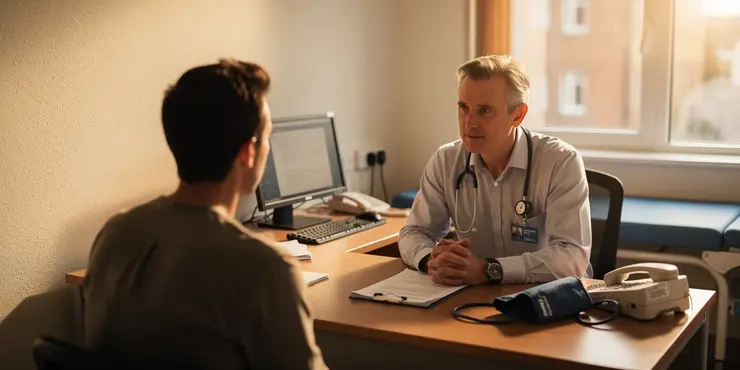
Diagnosing irritable bowel syndrome (IBS)
Relevance: 98%
-
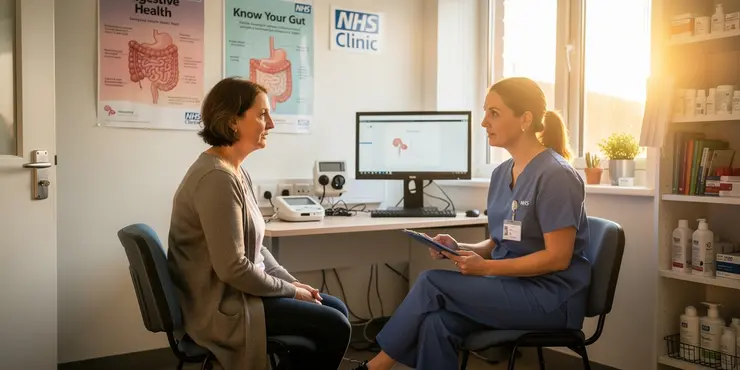
About irritable bowel syndrome (IBS)
Relevance: 98%
-
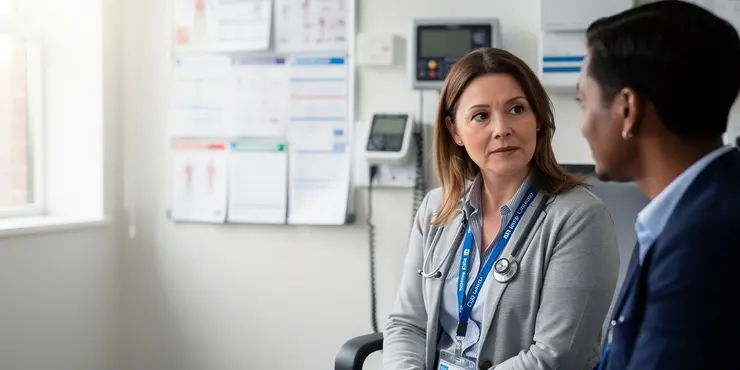
What is irritable bowel syndrome (IBS)?
Relevance: 97%
-
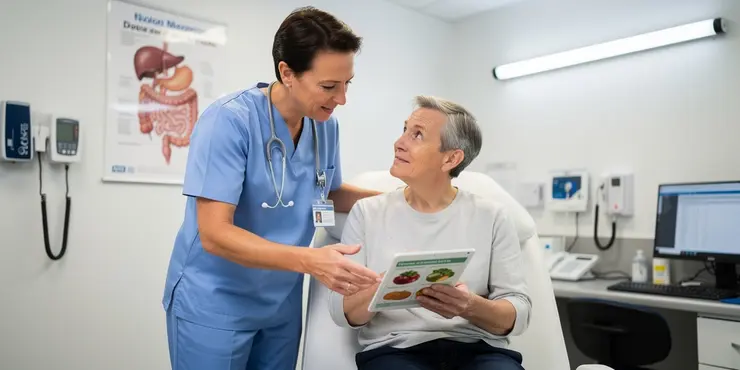
Treating irritable bowel syndrome (IBS)
Relevance: 96%
-
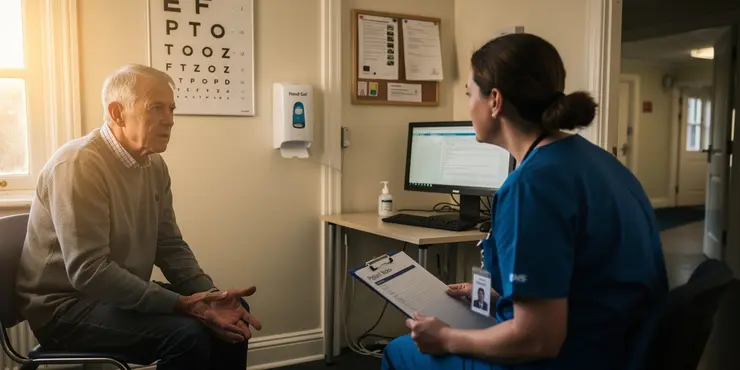
Causes of irritable bowel syndrome (IBS)
Relevance: 95%
-
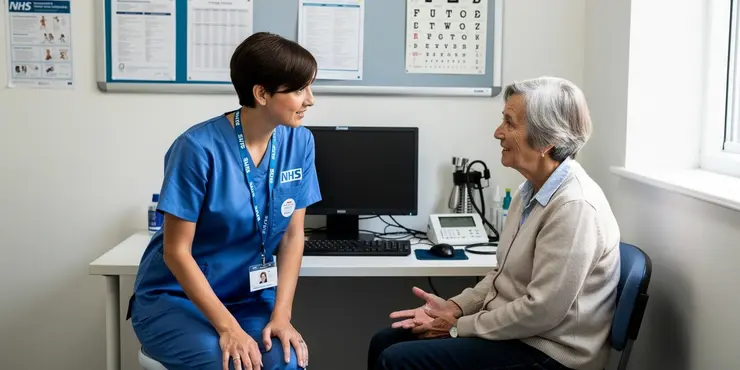
Causes of irritable bowel syndrome (IBS)
Relevance: 94%
-
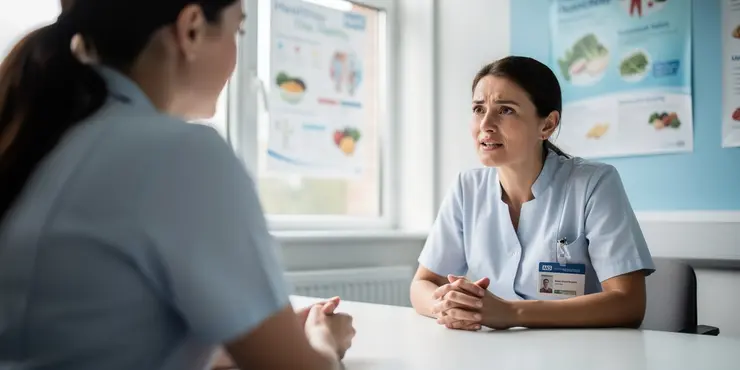
Treating irritable bowel syndrome (IBS)
Relevance: 91%
-

Symptoms of irritable bowel syndrome (IBS)
Relevance: 90%
-
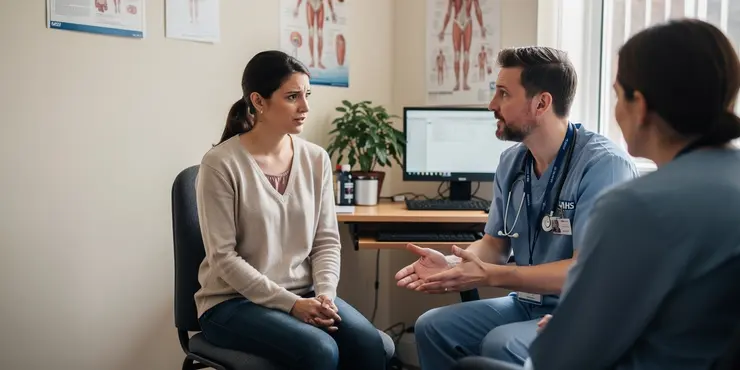
IBS and your mind: Is there a connection?
Relevance: 58%
-
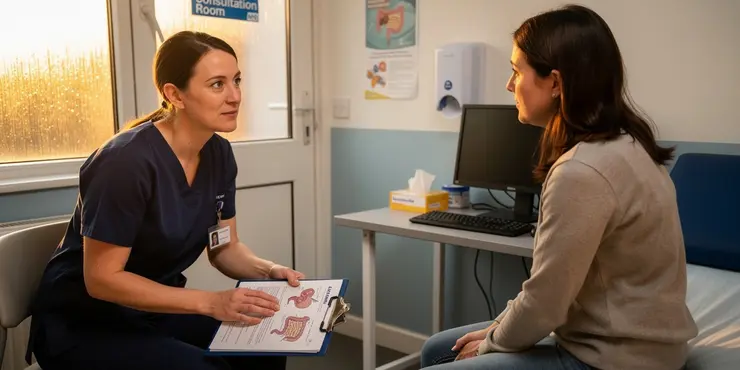
IBS and your mind: Is there a connection?
Relevance: 58%
-
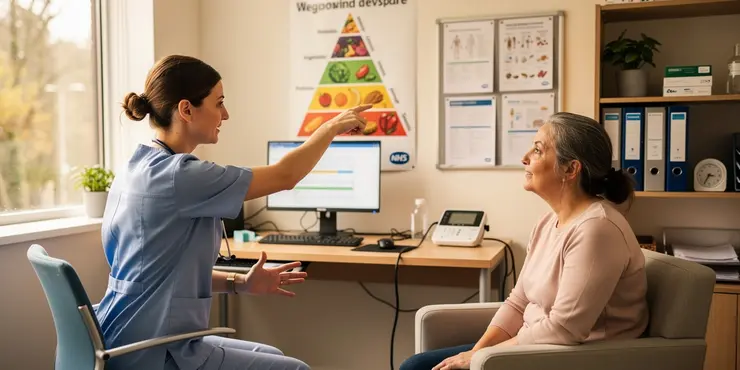
Does your diet affect IBS?
Relevance: 48%
-
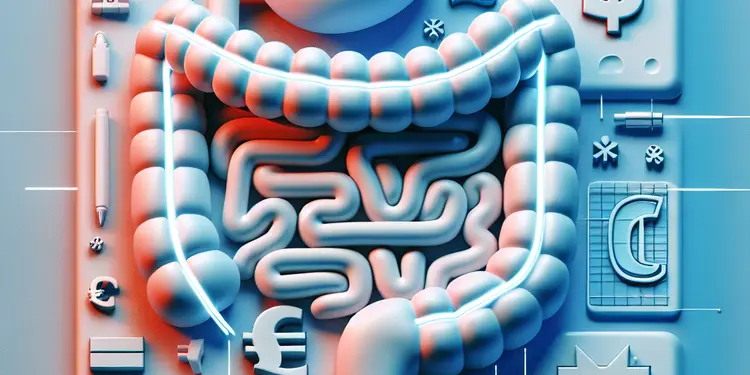
Are there specific gut-related diseases that become more common with age?
Relevance: 33%
-
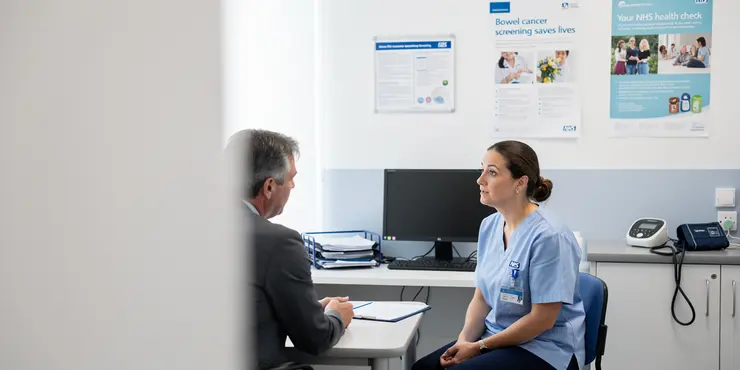
Taking a Genetic Family History - The Conversation (Bowel Cancer)
Relevance: 31%
-
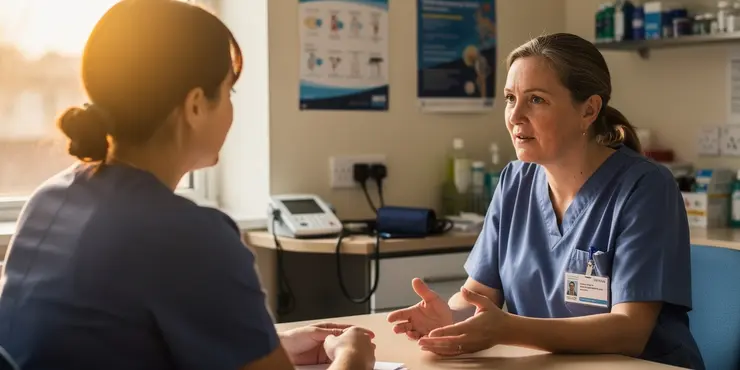
What are the side effects of bowel cancer treatment?
Relevance: 31%
-

Why is there a surge in bowel cancer?
Relevance: 31%
-
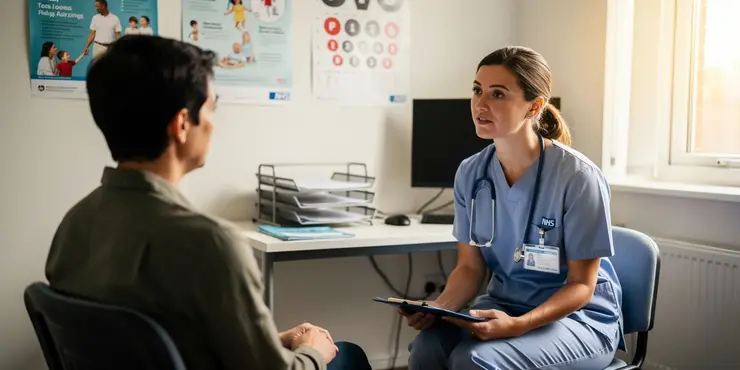
How does family history affect the risk of bowel cancer?
Relevance: 30%
-
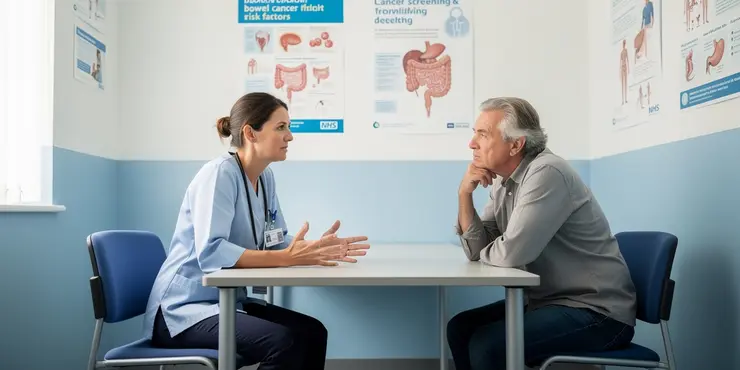
What are the risk factors for bowel cancer?
Relevance: 30%
-
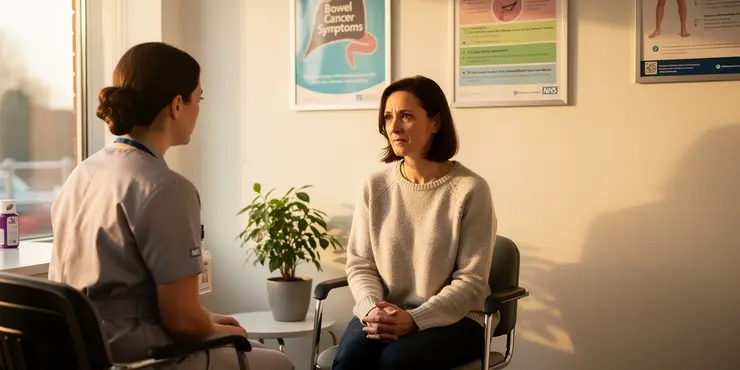
What is Bowel Cancer?
Relevance: 29%
-
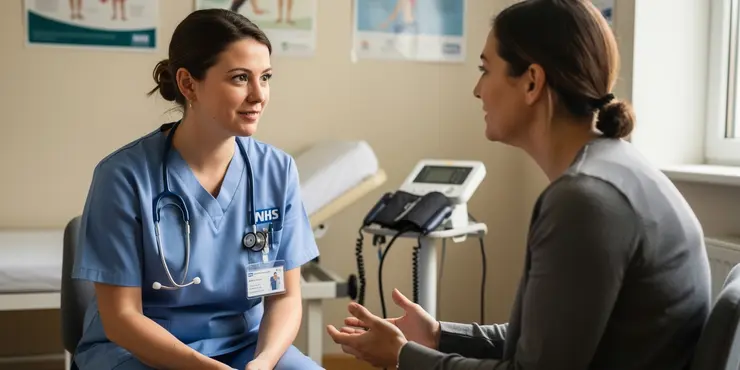
How common is bowel cancer?
Relevance: 27%
-
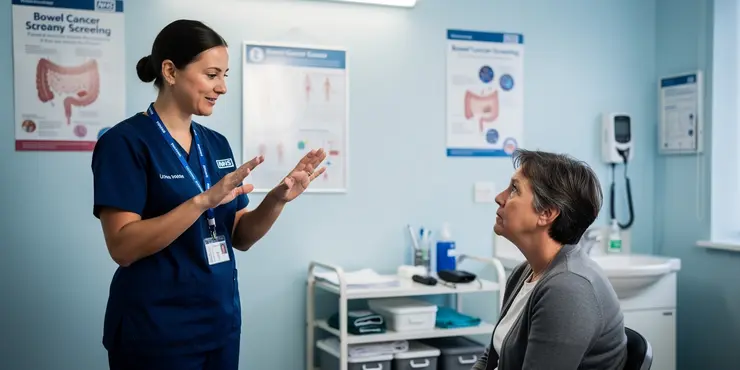
Learn about bowel cancer (British Sign Language version)
Relevance: 27%
-
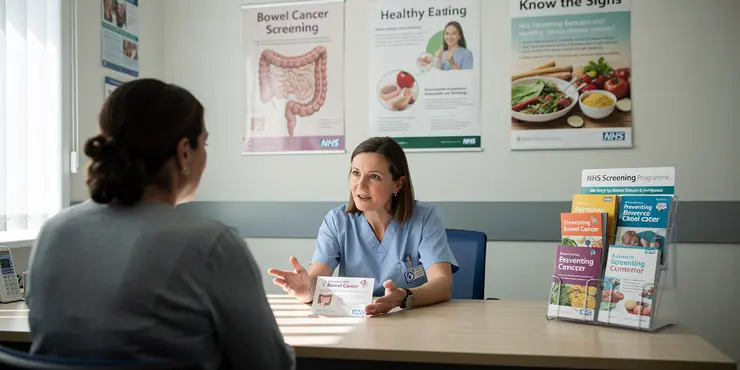
Can bowel cancer be prevented?
Relevance: 27%
-
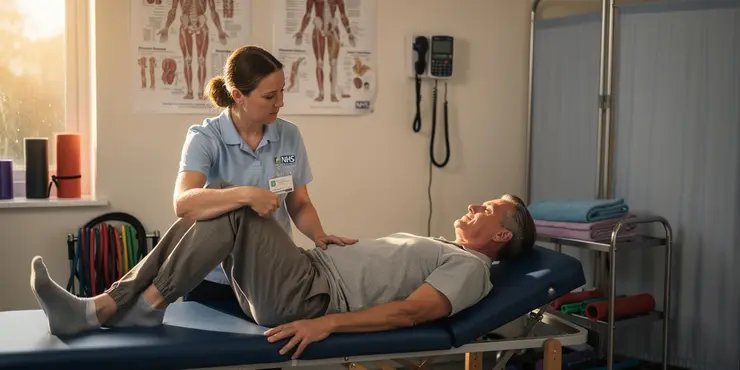
Exercises for sciatica: piriformis syndrome | NHS
Relevance: 26%
-
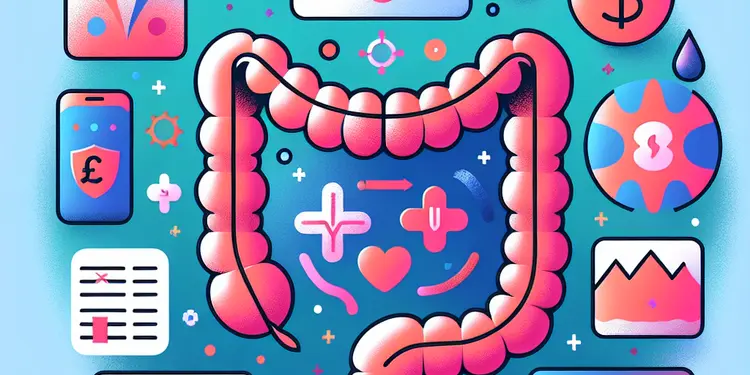
What factors are contributing to the increase in bowel cancer cases?
Relevance: 26%
-
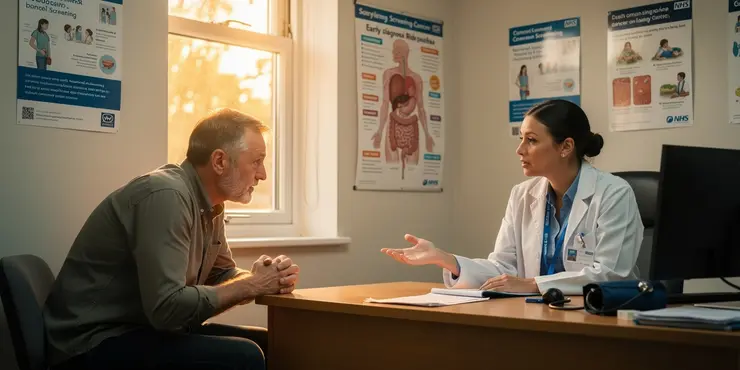
How is bowel cancer diagnosed?
Relevance: 26%
-

Is diet linked to the rise in bowel cancer?
Relevance: 25%
-
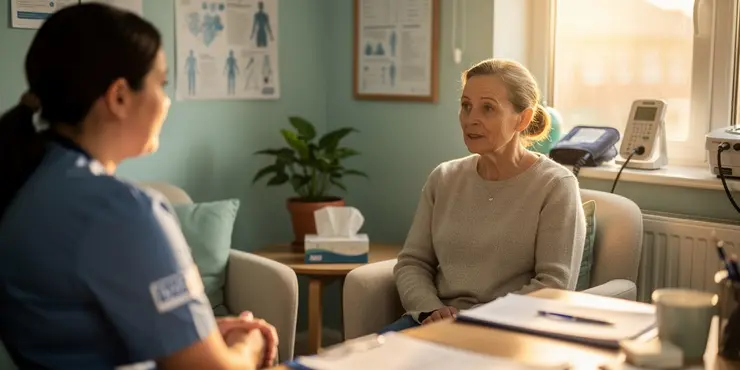
What is Cushing's syndrome?
Relevance: 25%
-
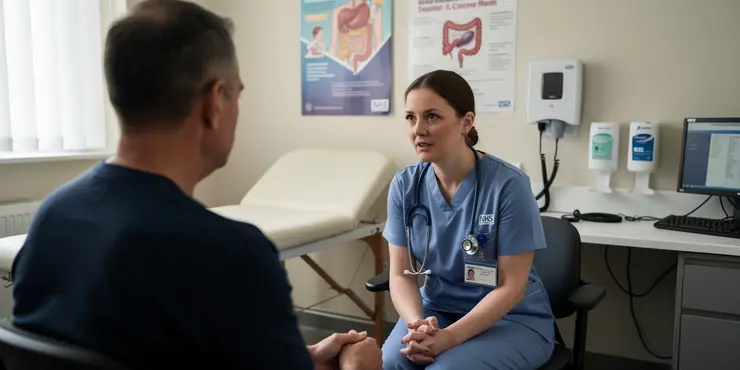
What is the survival rate for bowel cancer?
Relevance: 25%
-
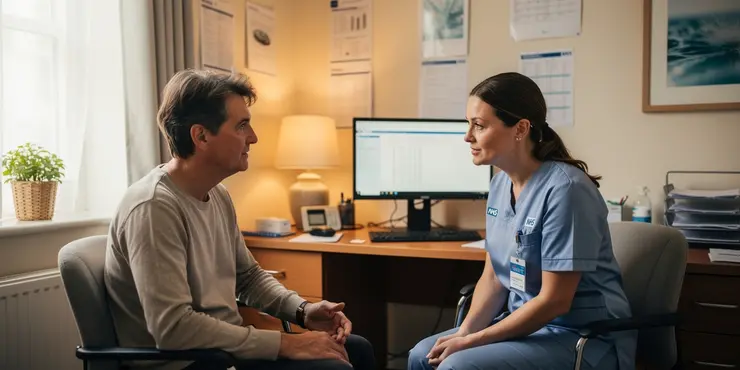
Munchausen's syndrome | NHS
Relevance: 25%
-

Are younger people being diagnosed with bowel cancer more frequently?
Relevance: 24%
-
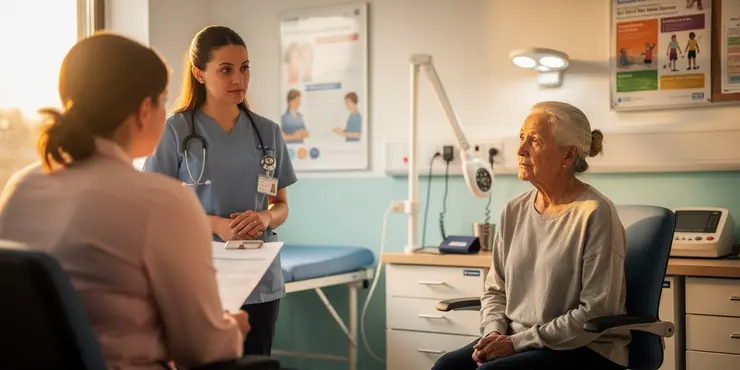
Bowel cancer - Symptoms and signs to look out for
Relevance: 24%
-
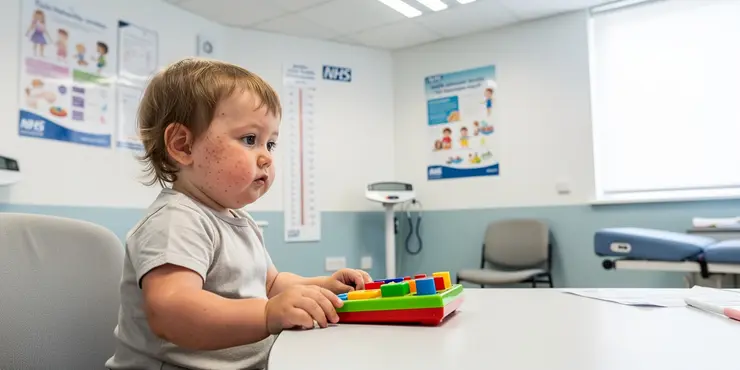
Prader-Willi Syndrome | NHS
Relevance: 24%
-
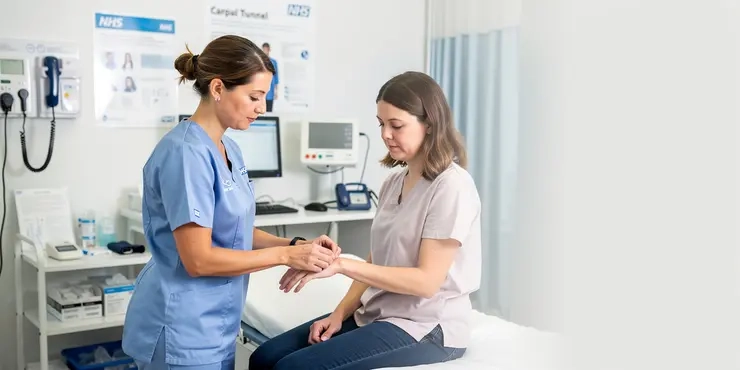
Carpal Tunnel Syndrome
Relevance: 24%
-
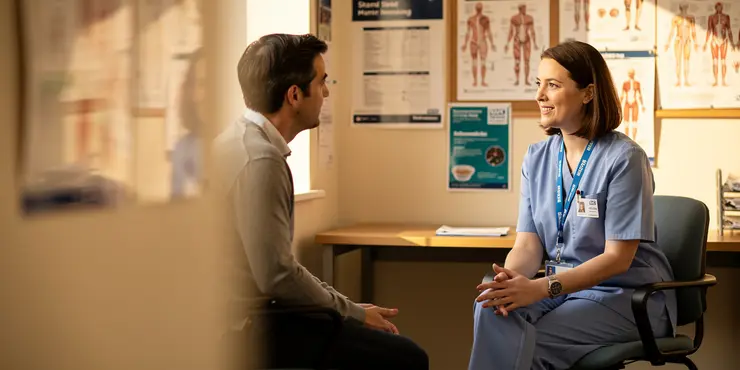
What treatment options are available for bowel cancer?
Relevance: 24%
-
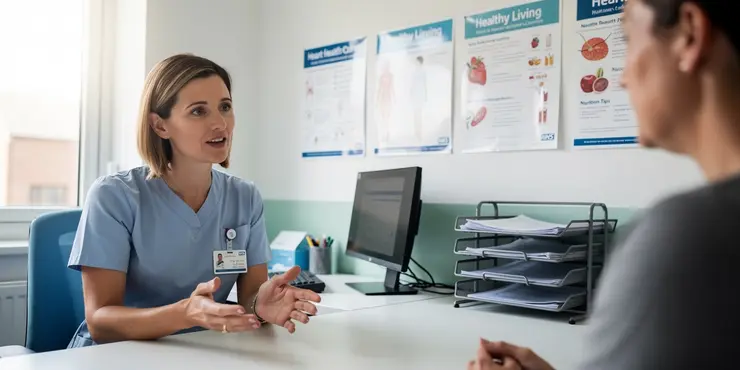
What lifestyle changes can help lower the risk of bowel cancer?
Relevance: 23%
-
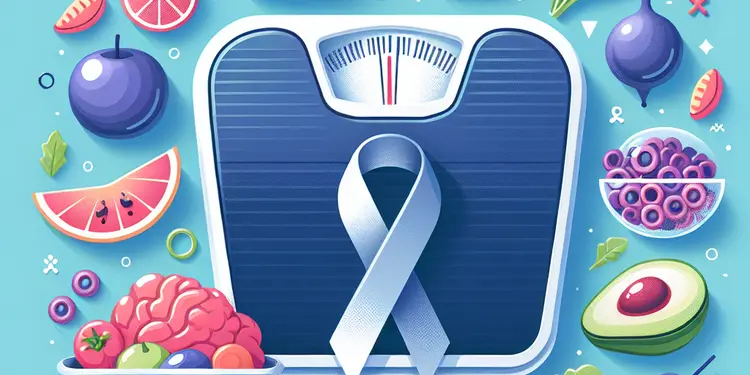
How does obesity affect bowel cancer rates?
Relevance: 23%
-
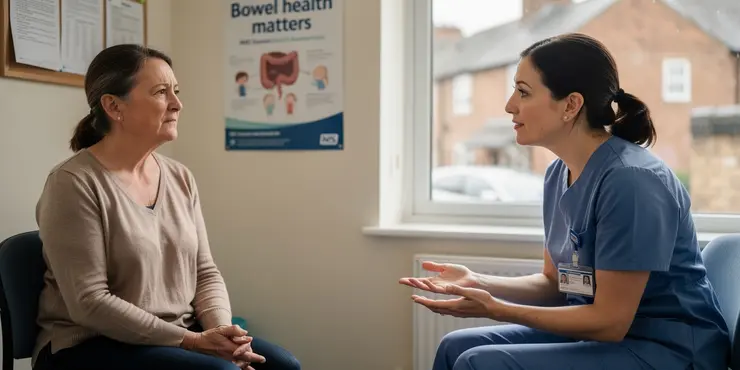
Can bowel cancer spread to other parts of the body?
Relevance: 23%
-
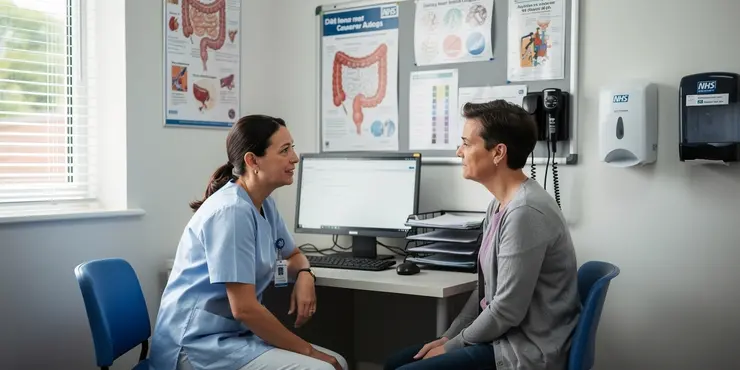
How is the stage of bowel cancer determined?
Relevance: 23%
About Irritable Bowel Syndrome (IBS)
What is IBS?
Irritable Bowel Syndrome (IBS) is a common, long-term condition of the digestive system. It affects the large intestine and is characterised by symptoms like abdominal pain, bloating, and changes in bowel habits. It is estimated that up to one in five people in the United Kingdom may experience IBS at some point in their lives, highlighting the importance of understanding and managing this condition.
Symptoms of IBS
The symptoms of IBS can be quite varied and may include cramping, abdominal pain, bloating, gas, and altered bowel habits such as diarrhoea, constipation, or a combination of both. These symptoms tend to come and go over time and can be mild or severe. Some people also experience other issues like feeling tired, nausea, and backache.
Causes and Triggers
The exact cause of IBS is not well understood, but it is believed to be related to a combination of abnormal gastrointestinal (GI) tract movements, increased sensitivity of the intestines, and the way the brain interacts with the gut. Common triggers include certain foods, stress, and hormonal changes. In the UK, foods that often aggravate IBS include fried foods, chocolate, alcohol, and caffeine.
Diagnosis and Treatment
Diagnosis of IBS primarily involves ruling out other conditions through a thorough medical history, physical examination, and sometimes additional tests such as blood tests, stool tests, and colonoscopy. As there is no cure for IBS, treatment focuses on managing symptoms. This may include dietary changes, lifestyle adjustments, medications, and psychological interventions. In the UK, resources like the NHS provide guidelines and support for managing IBS effectively.
Living with IBS
Living with IBS can be challenging, but many people find relief through tailored lifestyle and dietary changes. Keeping a food diary to identify and avoid triggers, regular exercise, and stress management techniques such as mindfulness or yoga can significantly improve the quality of life. Support groups and counselling can also provide valuable resources and emotional support.
Getting Support
If you suspect you have IBS, it is important to consult with a healthcare professional for an accurate diagnosis and personalised treatment plan. In the UK, services like the NHS offer comprehensive information and support for those living with IBS. Additionally, organisations such as The IBS Network provide ongoing support, practical advice, and connect individuals with others facing similar challenges.
About Irritable Bowel Syndrome (IBS)
What is IBS?
Irritable Bowel Syndrome, or IBS, is a problem with how your tummy works. It can make your tummy hurt and feel full of gas. IBS can also change how often you need to go to the toilet. Lots of people in the UK have IBS, so it is good to know about it and how to make it better.
Symptoms of IBS
If you have IBS, you might feel cramps or pain in your tummy. Your tummy might feel full and you might pass gas a lot. You could need to go to the toilet more or less often, or both. Sometimes you might feel very tired, feel sick, or have a backache. The symptoms can be different for everyone and can come and go.
Causes and Triggers
We do not know exactly why people get IBS. It might happen because your tummy does not work as it should, or because your tummy is very sensitive. Things like certain foods, stress, and changes in your body can make IBS worse. In the UK, foods like fried foods, chocolate, alcohol, and caffeine can make IBS worse.
Diagnosis and Treatment
To find out if you have IBS, doctors will check for other problems first. This might include asking questions about your health and doing some tests. There is no cure for IBS, but you can manage it by eating certain foods, changing your habits, taking medicine, and learning ways to handle stress. The NHS in the UK has good advice for people with IBS.
Living with IBS
Living with IBS can be hard, but there are ways to feel better. Keeping a food diary can help you find out which foods are bad for you. Moving your body with exercise and learning to relax with techniques like yoga can help a lot. Talking to other people with IBS and getting advice can be useful too.
Getting Support
If you think you have IBS, go to a doctor to make sure and get advice on what to do. The NHS in the UK has lots of information for people with IBS. There are also groups like The IBS Network that can help you with advice and support.
Frequently Asked Questions
What is Irritable Bowel Syndrome (IBS)?
Irritable Bowel Syndrome (IBS) is a common gastrointestinal disorder that affects the large intestine, causing symptoms like abdominal pain, bloating, and changes in bowel habits.
What are the symptoms of IBS?
Common symptoms of IBS include abdominal pain, bloating, gas, diarrhea, constipation, or a combination of both. Symptoms can vary widely from person to person.
What causes IBS?
The exact cause of IBS is unknown, but it is believed to involve a combination of gut-brain axis issues, gastrointestinal motility problems, and heightened sensitivity to pain in the digestive tract.
How is IBS diagnosed?
IBS is usually diagnosed based on symptoms and by ruling out other conditions. A doctor may perform tests such as blood tests, stool tests, or a colonoscopy to exclude other conditions.
Can IBS be cured?
There is currently no cure for IBS, but its symptoms can be managed with lifestyle changes, diet, and medication.
What foods should be avoided with IBS?
Common trigger foods for IBS include fatty foods, spicy foods, dairy products, caffeine, and artificial sweeteners. Keeping a food diary can help identify personal triggers.
Can stress affect IBS?
Yes, stress can significantly impact IBS symptoms. Stress management techniques such as mindfulness, therapy, and relaxation exercises can help reduce symptom severity.
Are there any medications for IBS?
Yes, medications such as antispasmodics, laxatives, anti-diarrheal medications, and low-dose antidepressants can help manage IBS symptoms. Always consult a healthcare provider before starting any medication.
Is IBS more common in women or men?
IBS is more commonly diagnosed in women than men. Hormonal differences are thought to play a role in this discrepancy.
Can probiotics help with IBS?
Some people with IBS find relief from taking probiotics, which can help balance gut bacteria. However, the effectiveness varies from patient to patient.
How can diet changes help with IBS?
Diet changes like following a low FODMAP diet and keeping a food diary can help identify and avoid trigger foods, reducing IBS symptoms.
Are there any natural remedies for IBS?
Natural remedies such as peppermint oil, ginger, and chamomile tea may help alleviate some IBS symptoms. However, their effectiveness can vary and should be discussed with a healthcare provider.
Can exercise help manage IBS symptoms?
Yes, regular exercise can help reduce stress and improve bowel function, which may help alleviate IBS symptoms.
Is IBS linked to other digestive disorders?
IBS can sometimes be associated with other digestive disorders like gastroesophageal reflux disease (GERD) and celiac disease. It's important to get a proper diagnosis from a healthcare provider.
When should I see a doctor about IBS symptoms?
If you experience severe symptoms, a change in your usual symptoms, or symptoms such as weight loss, anemia, or blood in the stool, you should see a doctor promptly.
What is Irritable Bowel Syndrome (IBS)?
Irritable Bowel Syndrome, or IBS, is when your tummy does not feel good. It can cause tummy pain, diarrhea, or constipation. It is not a serious illness but can make you feel uncomfortable.
If you have IBS, it helps to eat healthy food, drink water, and get exercise. Talking to a doctor can help you feel better.
Irritable Bowel Syndrome, or IBS, is a common problem with the stomach. It affects the big part of the gut. It can cause tummy pain, make your belly feel full, and change how often you poo.
What are the signs of IBS?
IBS is short for Irritable Bowel Syndrome. It affects the tummy.
Signs of IBS can be:
- Feeling a lot of pain in your tummy.
- Tummy that feels bloated or full.
- Going to the toilet too much or not enough.
- Runny poop (Diarrhea) or hard poop (Constipation).
If you think you have these signs, talk to a doctor.
Using a diary to track your food and tummy feelings can help.
A doctor can help make a plan to feel better.
People with IBS often feel pain in their tummy. They might also feel bloated, have gas, or have problems with their poo. Sometimes they might need to go to the toilet a lot, or they might have trouble going at all. Everyone can feel different symptoms.
What makes your tummy hurt? (IBS)
IBS makes your tummy (stomach) feel bad. We don't know all the reasons why this happens. Here are some things that might make it happen:
- Your tummy may not move food through it the right way.
- Your tummy might be super sensitive to some foods.
- Feeling worried or upset can make your tummy hurt.
- Germs in your tummy might not be balanced.
Things that can help:
- Talking to a doctor for help.
- Eating healthy foods that are easy on your tummy.
- Doing things to relax, like deep breathing or listening to music.
We don't know exactly what causes IBS. But we think it happens because of a mix of things. These include problems with how the gut and brain talk to each other, issues with how the gut moves, and being more sensitive to pain in the tummy.
How do doctors find out if you have IBS?
Doctors ask you questions about how you feel. They might ask about tummy aches and bathroom habits. You might also have some tests. These tests help doctors make sure it is IBS and not something else.
If you need help, ask someone you trust to go with you to the doctor.
Doctors find out if you have IBS by looking at your symptoms. They check to make sure it is not something else. The doctor might do some tests like blood tests, stool tests, or a colonoscopy to rule out other problems.
Can IBS be fixed?
IBS stands for Irritable Bowel Syndrome. It makes your tummy hurt and causes problems with going to the toilet.
There is no medicine that can completely fix IBS.
But, there are ways to help you feel better:
- Eat healthy food.
- Try not to eat foods that upset your tummy.
- Drink plenty of water.
- Exercise regularly.
- Talk to a doctor for advice.
Here are some tools that might help:
- Track what you eat and how you feel in a diary.
- Find a support group to talk to others.
These tips can help you manage IBS and feel better.
There is no cure for IBS right now. But you can feel better by changing what you eat, how you live, and using medicine.
What foods should you not eat if you have IBS?
If you have IBS, some foods can make your tummy hurt or feel bad.
- Spicy foods
- Fried foods
- Too much dairy like milk or cheese
- Beans and lentils
- Foods that have a lot of fat
- Some fruits like apples and peaches
- Sugary drinks and snacks
When you eat these foods, your tummy might feel upset, or you might need to go to the toilet a lot.
Ask a grown-up for help to choose foods that are gentle on your tummy.
You can also try keeping a food diary. Write down what you eat and how you feel. This can help you find out what foods make you feel bad.
Some foods can make IBS worse. These foods are: fatty foods, spicy foods, milk and cheese, coffee and tea, and fake sugars.
Writing down what you eat can help you find out which foods are a problem for you.
Does being stressed make IBS worse?
Yes, stress can make IBS worse. IBS stands for Irritable Bowel Syndrome. Stress can make your tummy hurt or feel upset.
There are ways to help with stress. You can try doing things like:
- Mindfulness - This means paying attention to what you are doing right now. Like thinking about your breathing.
- Talking to someone - Like a therapist. They help you understand your feelings.
- Relaxation exercises - These are things like deep breathing or stretching. They help you feel calm.
These can help make your IBS not as bad.
Can medicine help with IBS?
Yes, medicines can help with IBS (Irritable Bowel Syndrome). Some medicines that can help are:
- Medicines that relax the stomach muscles
- Medicines that help you go to the toilet
- Medicines that stop diarrhea (loose poo)
- Medicines that help you feel better, even if they are normally for sadness
Always talk to a doctor before you start any medicine.
If reading is hard, try these ideas:
- Ask someone to read it with you.
- Use a text-to-speech tool to listen to the words.
- Break the text into smaller parts and read a bit at a time.
Who gets IBS more, women or men?
IBS stands for Irritable Bowel Syndrome. It is a tummy problem. More women get IBS than men. This means women have tummy problems like IBS more often.
You can use a calendar to track your symptoms. Writing down when your tummy hurts can help. Ask a doctor or a nurse for help if you feel unwell.
More women than men are told they have IBS. Many people think that this is because women's bodies have different hormones.
Can good bacteria help with tummy problems?
Some people with tummy problems, like IBS, feel better when they take probiotics. Probiotics are good for balancing the tiny bugs in your belly. But, they don't work the same for everyone.
How can changing what you eat help with IBS?
IBS stands for Irritable Bowel Syndrome. It means your tummy can hurt and you might have trouble going to the toilet.
Eating different foods can help you feel better. Here are some tips:
- Try eating smaller meals.
- Avoid foods that make you feel bad, like spicy or fatty foods.
- Eat more fruits and vegetables.
- Drink lots of water.
It can help to talk to a doctor or dietitian. They can tell you what foods are good for you.
Try keeping a food diary. Write down what you eat and how you feel. This can help you see what foods help or hurt your tummy.
Changing what you eat can help with tummy problems. Try a low FODMAP diet and write down what you eat in a food diary. This can help you find foods that make your tummy hurt and avoid them to feel better.
Can nature help with tummy problems?
Natural remedies like peppermint oil, ginger, and chamomile tea might help with some IBS symptoms. But remember, they might not work the same for everyone. It's a good idea to talk to a doctor before trying them.
Can exercise help with IBS symptoms?
IBS means Irritable Bowel Syndrome. It's a tummy problem that some people have.
Exercise means moving your body, like playing or walking.
Exercise can sometimes help if your tummy doesn't feel good.
Try to do a little exercise every day, like walking or stretching.
If your tummy hurts a lot, talk to a doctor before starting exercise.
Yes, exercise can help you feel less stressed. It can also help your tummy work better. This can make IBS symptoms feel better.
Does IBS have a connection with other tummy troubles?
IBS, which stands for Irritable Bowel Syndrome, is a tummy condition.
If you have IBS, you might wonder if it is connected to other tummy troubles.
Some people with IBS might also have other tummy issues like:
- Heartburn
- Bloating
- Constipation
- Diarrhea
These problems can feel uncomfortable.
It can help to talk to a doctor or nurse about your tummy.
Tools like picture cards or videos can help explain how these tummy troubles work.
A doctor can give advice on how to feel better.
Sometimes, IBS can happen with other tummy problems like heartburn (GERD) and celiac disease. It's important to see a doctor to find out what's going on.
When should I talk to a doctor about IBS symptoms?
If your stomach hurts a lot, or if you often have diarrhea, constipation, or feel bloated, it might be a good idea to talk to a doctor. These could be signs of IBS, which is short for Irritable Bowel Syndrome.
Try to keep a diary of what you eat and how you feel to show to the doctor. This can help them understand what's happening in your body.
If you're in pain or worried, it's okay to ask for help. A doctor can give you advice and treatments to help you feel better.
Some people find it helpful to use pictures or apps to explain how they feel. You can try this if it's hard to talk about your symptoms.
If you feel very sick, or if your sickness changes, you need to tell an adult. Go to the doctor if:
- You lose weight without trying.
- You feel very tired or dizzy (this is called anemia).
- You see blood in your poo.
These are reasons to get help fast. It’s always a good idea to talk to someone you trust. Writing down how you feel can help too.
Useful Links
This website offers general information and is not a substitute for professional advice.
Always seek guidance from qualified professionals.
If you have any medical concerns or need urgent help, contact a healthcare professional or emergency services immediately.
Some of this content was generated with AI assistance. We’ve done our best to keep it accurate, helpful, and human-friendly.
- Ergsy carfully checks the information in the videos we provide here.
- Videos shown by Youtube after a video has completed, have NOT been reviewed by ERGSY.
- To view, click the arrow in centre of video.
- Most of the videos you find here will have subtitles and/or closed captions available.
- You may need to turn these on, and choose your preferred language.
- Go to the video you'd like to watch.
- If closed captions (CC) are available, settings will be visible on the bottom right of the video player.
- To turn on Captions, click settings .
- To turn off Captions, click settings again.
More Items From Ergsy search
-

Symptoms of irritable bowel syndrome (IBS)
Relevance: 100%
-

What is irritable bowel syndrome (IBS)?
Relevance: 99%
-

About irritable bowel syndrome (IBS)
Relevance: 98%
-

Diagnosing irritable bowel syndrome (IBS)
Relevance: 98%
-

About irritable bowel syndrome (IBS)
Relevance: 98%
-

What is irritable bowel syndrome (IBS)?
Relevance: 97%
-

Treating irritable bowel syndrome (IBS)
Relevance: 96%
-

Causes of irritable bowel syndrome (IBS)
Relevance: 95%
-

Causes of irritable bowel syndrome (IBS)
Relevance: 94%
-

Treating irritable bowel syndrome (IBS)
Relevance: 91%
-

Symptoms of irritable bowel syndrome (IBS)
Relevance: 90%
-

IBS and your mind: Is there a connection?
Relevance: 58%
-

IBS and your mind: Is there a connection?
Relevance: 58%
-

Does your diet affect IBS?
Relevance: 48%
-

Are there specific gut-related diseases that become more common with age?
Relevance: 33%
-

Taking a Genetic Family History - The Conversation (Bowel Cancer)
Relevance: 31%
-

What are the side effects of bowel cancer treatment?
Relevance: 31%
-

Why is there a surge in bowel cancer?
Relevance: 31%
-

How does family history affect the risk of bowel cancer?
Relevance: 30%
-

What are the risk factors for bowel cancer?
Relevance: 30%
-

What is Bowel Cancer?
Relevance: 29%
-

How common is bowel cancer?
Relevance: 27%
-

Learn about bowel cancer (British Sign Language version)
Relevance: 27%
-

Can bowel cancer be prevented?
Relevance: 27%
-

Exercises for sciatica: piriformis syndrome | NHS
Relevance: 26%
-

What factors are contributing to the increase in bowel cancer cases?
Relevance: 26%
-

How is bowel cancer diagnosed?
Relevance: 26%
-

Is diet linked to the rise in bowel cancer?
Relevance: 25%
-

What is Cushing's syndrome?
Relevance: 25%
-

What is the survival rate for bowel cancer?
Relevance: 25%
-

Munchausen's syndrome | NHS
Relevance: 25%
-

Are younger people being diagnosed with bowel cancer more frequently?
Relevance: 24%
-

Bowel cancer - Symptoms and signs to look out for
Relevance: 24%
-

Prader-Willi Syndrome | NHS
Relevance: 24%
-

Carpal Tunnel Syndrome
Relevance: 24%
-

What treatment options are available for bowel cancer?
Relevance: 24%
-

What lifestyle changes can help lower the risk of bowel cancer?
Relevance: 23%
-

How does obesity affect bowel cancer rates?
Relevance: 23%
-

Can bowel cancer spread to other parts of the body?
Relevance: 23%
-

How is the stage of bowel cancer determined?
Relevance: 23%


